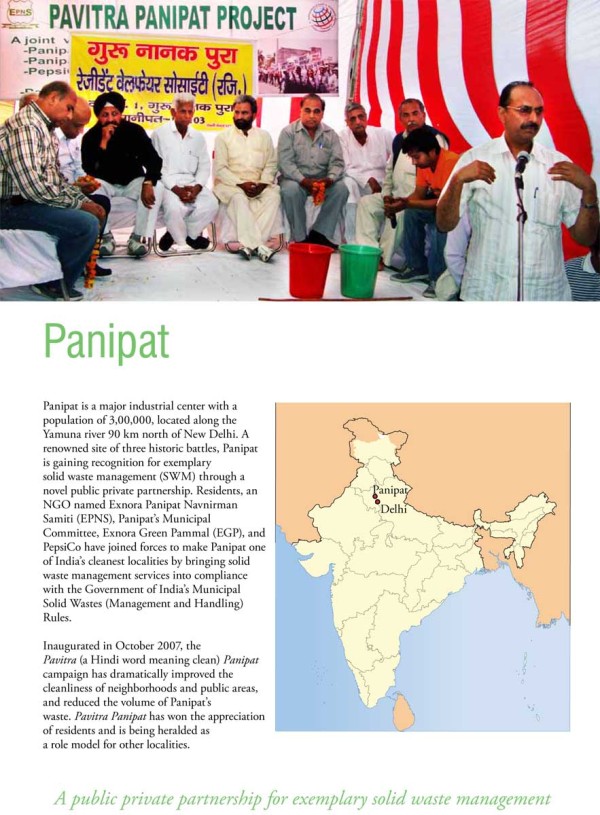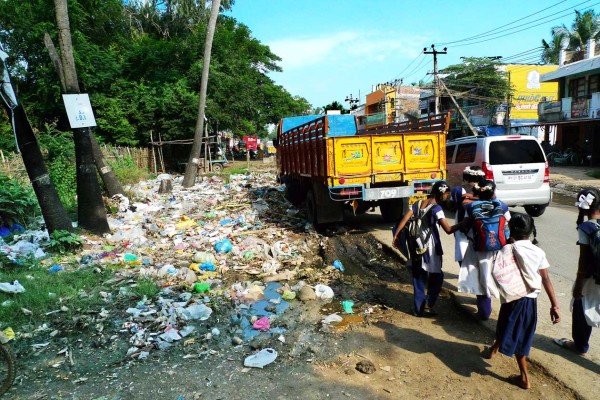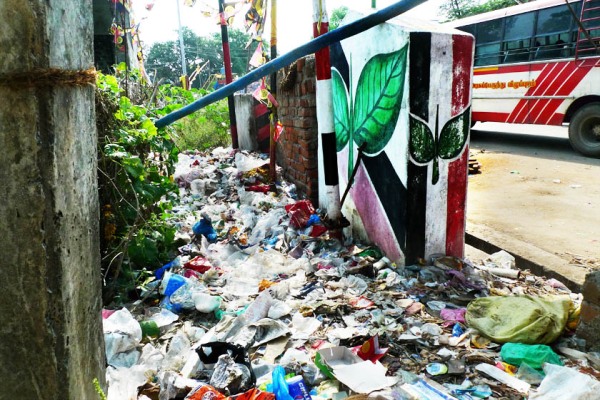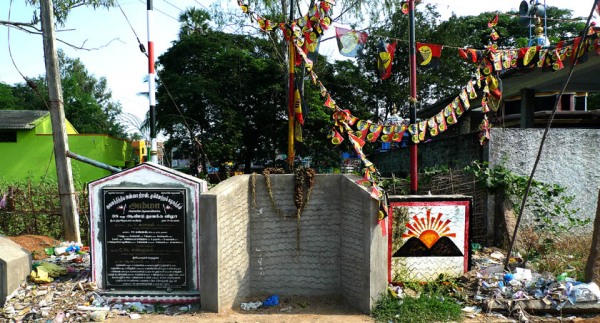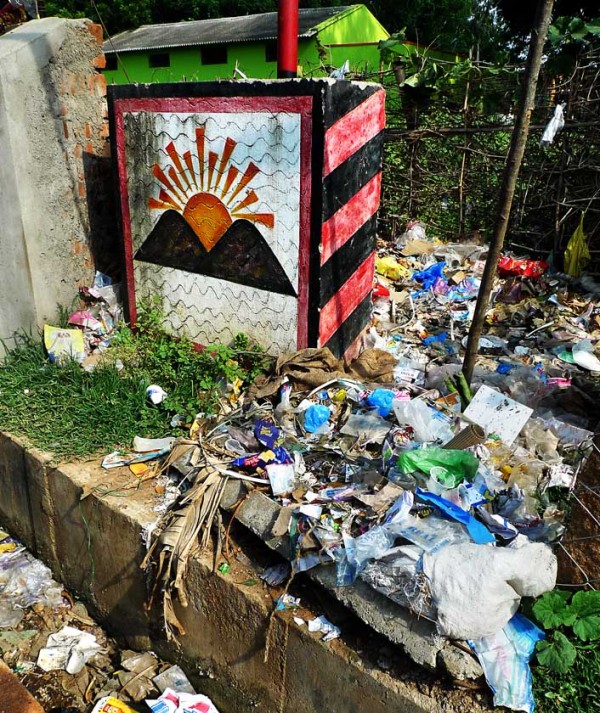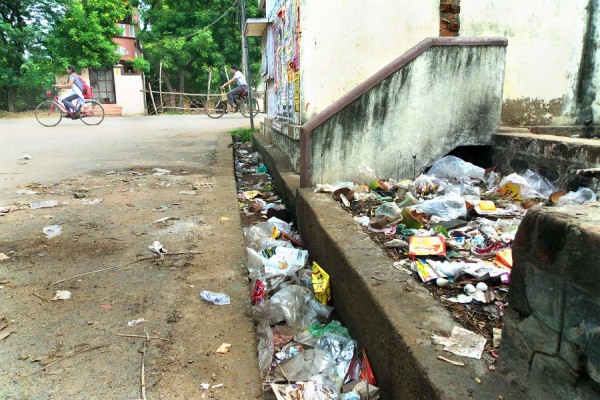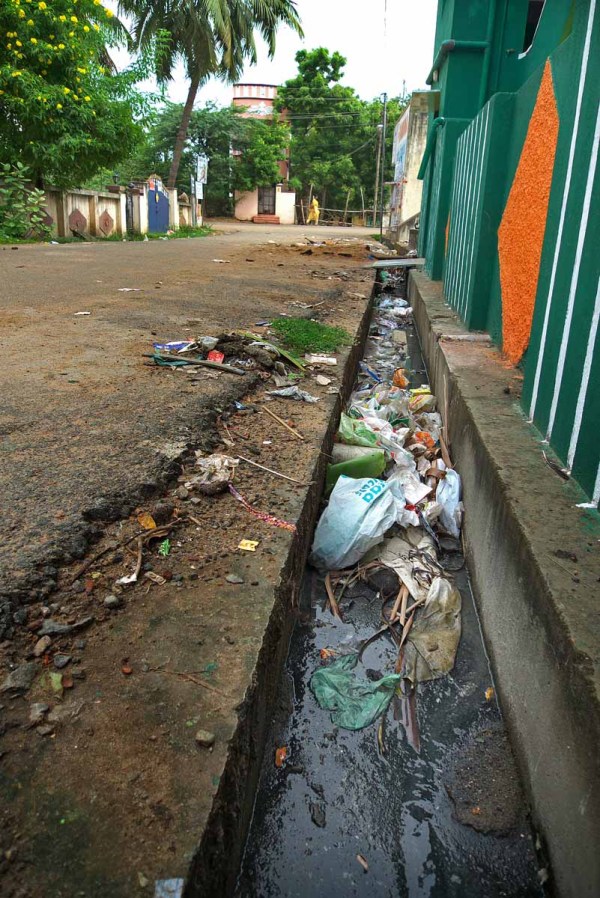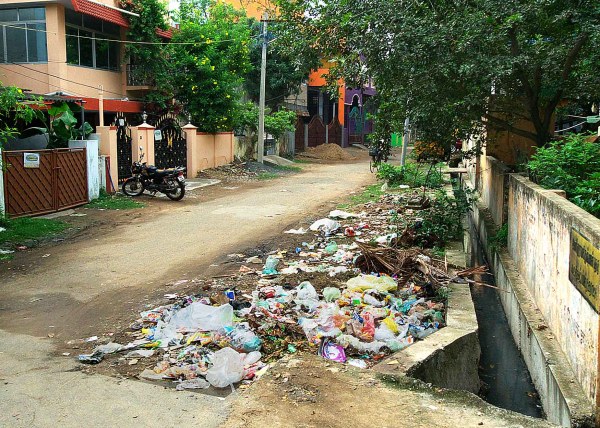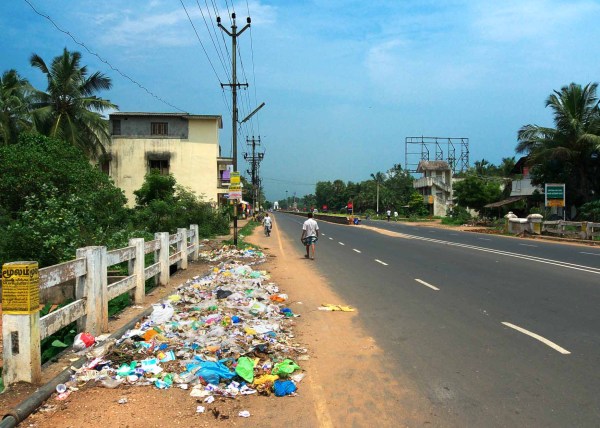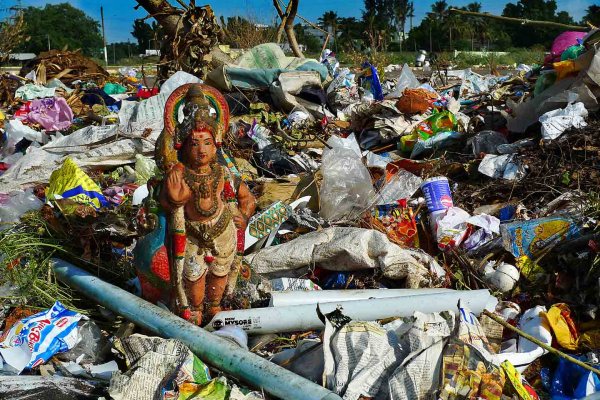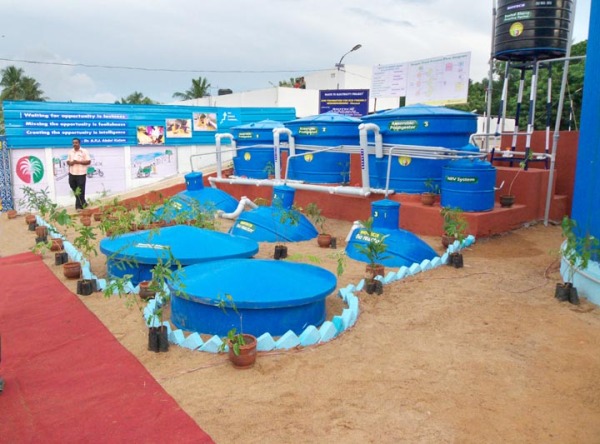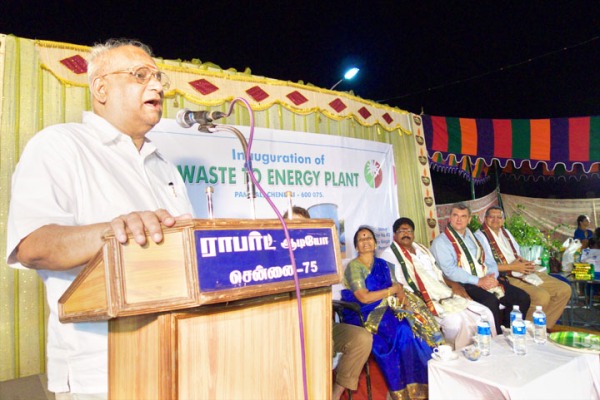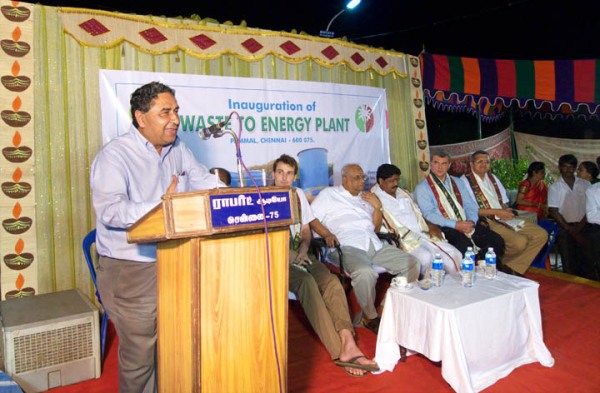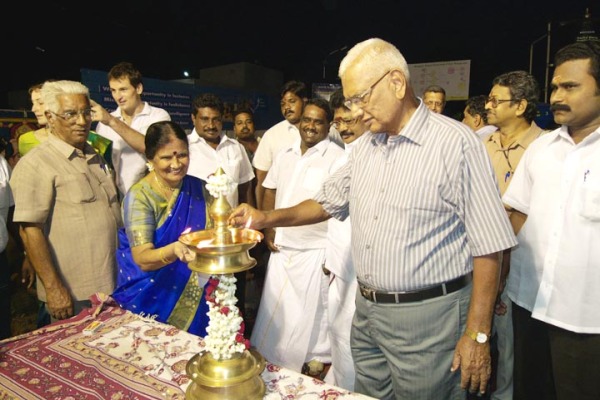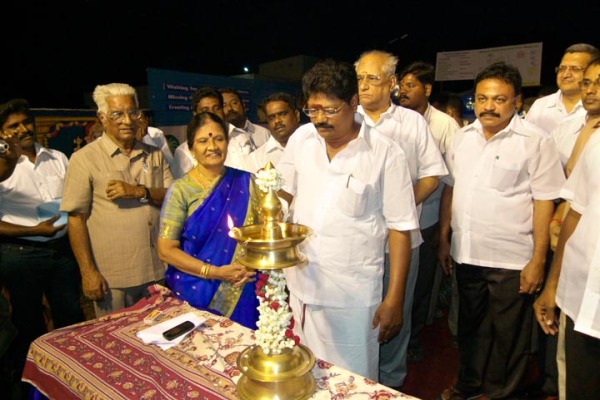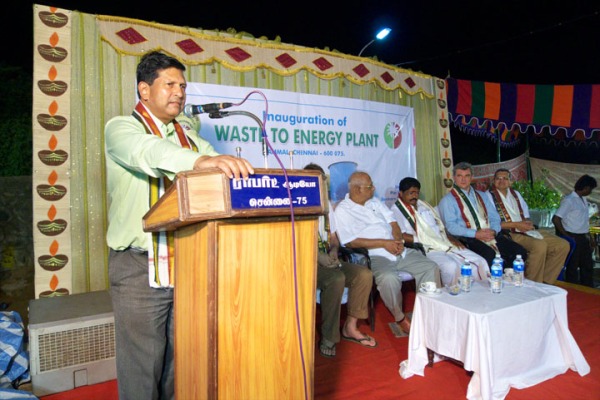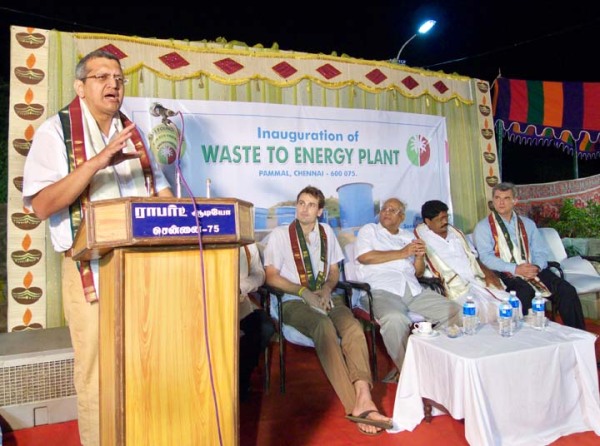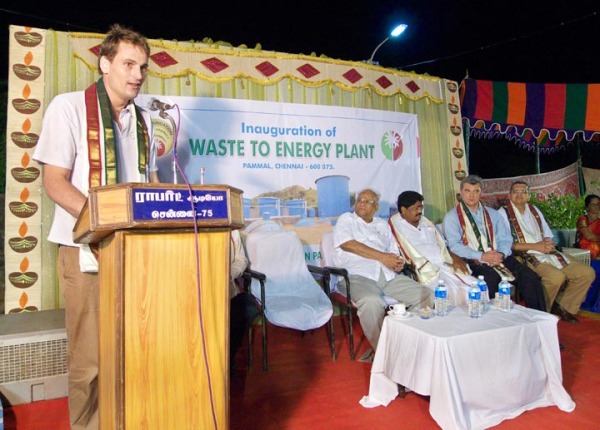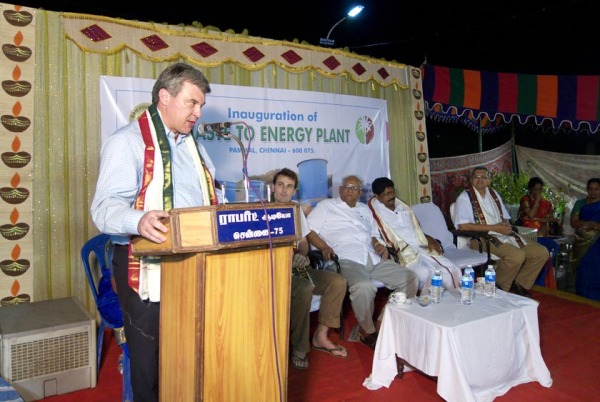New Website Launched
I’ve spent the past few weeks redesigning and rewriting the content of Exnora Green Pammal’s website. It has been a very enjoyable and interesting assingment, and I’m quite happy with the outcome. Tixon, my website designer at AVDZINES, did a fantastic job on the technical end, and was, as always, a pleasure to work with.
The new site, http://www.greenpammal.in, was launched this morning.
Please visit the site to learn more about Exnora Green Pammal’s innovative partnerships to bring solid waste management practices in several localities into greater compliance with the nation’s MSW Rules, and help India fulfill its commitments to the Millennium Development Goals.
From the site, you can download our latest reports and brochures, view photos and videos of our work, and find links to updates on our blog: http://greenpammalchennai.wordpress.com
India is in the midst of an ever-worsening solid waste crisis. According to Union Environment and Forest Minister Jairam Ramesh, India’s “cities have the dubious distinction of being the dirtiest cities in the world.” Although Minister Ramesh declared in November 2009, “we have to do something dramatic on municipal solid waste,” the government has taken no dramatic action in the past year. Waste management in India continues to idle at a crossroads while the nation steadily grows dirtier.
What direction might waste management take in the coming years?
The Municipal Solid Wastes (Management and Handling) Rules, enacted in 2000, have been under revision since 2008, but the public has not been informed about which aspects of the rules are being revised, who is doing the revising, or when the revision will take effect. Revision of the MSW rules is one of the nation’s best kept secrets.
Another possible direction is the construction of massive regional landfills, each large enough to hold all waste from up to 20 localities for up to 20 years. This recipe for disaster is advocated by the World Bank-administered Water and Sanitation Programme. One would expect the track record of the landfill in Mavallipura, near Bangalore, to curb even a World Banker’s enthusiasm for the WSP’s proposed panacea. The Mavallipura landfill, opened in 2007, was supposed to last for at least 20 years, but, according to a report by Environment Support Group Trust, Bangalore’s Toxic Legacy: Investigating Mavallipura’s Illegal Landfills, the facility is already overflowing, has caused serious environmental and public health problems, and is now a battleground for skirmishes between local residents, trying to close the facility, and the police, ordered to keep the landfill open.
Yet another possible direction is wider privatization of waste management services, although it isn’t clear how privatization can be harmonized with the existing legal framework for solid waste management, since private service providers tend to manage waste in ways that completely violate the MSW rules. The World Bank is marketing this formula for failure as “a new concept and approach,” despite the fact that the World Bank’s track record of privatizing municipal services since the early 1970’s has been more cautionary than encouraging.
A desperate measure to extend the life of existing dumps is the growing practice of exhuming waste from such dumps—a practice called bio-mining. After the exhumed waste is sieved, fine particles are being marketed as compost together with bags of synthetic fertilizer. Surprisingly, the advocates of this practice appear to be unconcerned about the fact that India’s dumpsites are heavily contaminated by persistent organic pollutants, including dioxins, furans, PCBs, and pesticides such as DDT and HCH. Despite the possibility that applying “compost” from dumps to agricultural land will contaminate the food supply with persistent organic pollutants, the practice is gaining in popularity as fertilizer manufacturers search for the cheapest way to comply with a 2006 government order mandating the co-marketing of compost with synthetic fertilizer.
Another possible scenario is that waste management services will continue to idle at a crossroads indefinitely, gridlocked by indecision, institutional inertia, bureaucratic indifference, corruption and incompetence.
Sadly, the least probable scenario is nationwide implementation of the ten year old, widely violated Municipal Solid Wastes (Management and Handling) Rules.
Exnora Green Pammal’s Work in Panipat
Read the new brochure about Exnora Green Pammal’s work in Panipat, Haryana.
Pollution as Political Expression?
I’ve lived in India for over 15 years, and watched the nation become phenomenally filthy. As someone whose job it is to document efforts to make Indian localities cleaner, I’ve developed a fascination with waste.
Garbage often appears to have been discarded indiscriminately. The nation has reached a point at which trash is so ubiquitous that it apparently goes unnoticed, as in this photo.
Garbage accumulates even in places that one would expect to be kept clean out of respect or pride, like around the base of flagpoles of this state’s main political parties. Near my house, I find the flagpoles of the AIADMK and DMK parties surrounded by rubbish. This leads me to wonder, Is this a form of public expression, of disapproval of elected leaders’ utter disregard for public sanitation? Or is it just random litter?
What (or Whom) to Blame for India’s Polluted Localities?
I don’t buy the Commonwealth Games Organizing Committee Secretary General Lalit Bhanot’s assertion that Indians’ standard of hygiene is different than foreigners’ standard of hygiene. Bhanot caused a national outcry when he claimed that spectacularly filthy accommodations in the Commonwealth Games Village were acceptable to Indian inspectors but unacceptable to foreigners because, “They (foreigners) want certain standards in hygiene and cleanliness which may differ from our perception.”
Can Bhanot’s assertion explain the ugly condition of neighborhoods throughout the country?
Residents routinely deposit their trash in gutters and at street corners, creating unhealthy conditions. Such litter impedes drainage, and mixes with human and animal excrement, creating ideal breeding conditions for diseases and disease vectors. Here are examples of common conditions:
Is this state of affairs due to Indians’ peculiar standard of hygiene, as Bhanot’s assertion might have us believe?
I don’t think so.
I think Indian neighborhoods are filthy because local authorities fail to implement and enforce the Government of India’s Municipal Solid Waste Management and Handling Rules. Enacted on 3 October 2000, the Rules mandate daily, house to house collection of segregated waste. The Rules also mandate composting of biodegradable waste, and recycling of recyclable materials, in order to minimize the burden on landfills and safeguard public health.
Are Indian officials violating their own waste management laws because their standard of hygiene tells them filth is fine?
It’s more likely that Indian officials don’t take waste management laws seriously because the laws have never been enforced. No official has been punished for not enforcing or complying with the rules, despite the fact that the rules clearly assign responsibility and specify penalties.
Any society will quickly become filthy if municipal waste collection services are interrupted or are done poorly. The question we must ask is not, “Why are Indian neighborhoods so filthy?” Rather, we must ask, “Why don’t Indian authorities implement and enforce the Municipal Solid Waste Management Rules?”
In localities throughout the country, waste management contracts are given to private contractors who collect mixed garbage and transport it to open dumpsites, where waste ignites and smolders, creating hazardous dioxins and furans. Such practices violate the nation’s MSW Rules, yet such practices continue.
Unfortunately, Indian officials didn’t take the Commonwealth Games crisis seriously until a bridge collapsed, injuring dozens of people. Will it take a comparable calamity to make authorities take sanitation seriously?
CWG Corruption May Set a Record
In an article titled, “The Crime Ministers”, that appears in the 11 October issue of India Today, reporter Mihir Srivastava writes that corruption in the preparations for the Commonwealth Games is “potentially the biggest collective scam in modern India”.
Last Sunday, The Hindu newspaper carried a powerfully written piece by Mumbai-based columnist, Kalpana Sharma, about the Games. You can read her piece, “In a Class of Our Own”, on The Hindu’s site, or at her blog.
Is Maiwand Afghanistan’s Mai Lai?
Today’s NY Times (http://www.nytimes.com/2010/10/05/world/asia/05afghan.html?_r=1&ref=global-home) reports the slaughter of 45 Afghan civilians by American soldiers in Maiwand district, Afghanistan.
Fifteen years ago, I left the US because I refused to pay taxes that fund such atrocities. America’s military spending and defense policy are destroying America by bankrupting the nation and by creating enemies faster than we can kill them.
America can’t afford 700 military bases in over 130 nations, and the occupation of Iraq and Afghanistan.
On October 1, Veterans for Peace held a demonstration in Washington (http://www.commondreams.org/further/2010/10/01-1).
America needs a thousand such demonstrations.
Yesterday, 3 October 2010, marked a decade since the enactment of India’s Municipal Solid Wastes (Management and Handling) Rules. Yet today, India is dirtier than ever because waste management services in most localities are not in compliance with the Rules. Rather, in many localities waste management services are contracted to private parties that transport mixed garbage from streetcorner dumpsters to open dumps outside of town.
How dirty is India? According to the nation’s Minister for Environment and Forests, Mr. Jairam Ramesh, “I think that our cities have the dubious distinction of being the dirtiest cities in the world. There is no doubt about it. If there is a Nobel Prize for dirt and filth, India will win it hands down.” (http://in.news.yahoo.com/139/20091120/808/tnl-india-has-best-environment-laws-but.html)
Gazetted on 3 October 2000, the Rules mandated daily, house-to-house collection of waste that is segregated into biodegradable and non-biodegradable categories. Biodegradable waste was to be composted, and non-biodegradable waste was to be recycled. The primary objectives of the Rules were to safeguard public health and minimize the burden on India’s landfills and dumpsites. The Rules also directed all local authorities to upgrade open dumps to sanitary landfills.
Initially, local bodies were given until December 2003 to bring their waste management services into compliance with the Rules. That deadline was widely ignored, so the central government extended the deadline by five years. But that deadline too was widely ignored. As of today, few localities comply with the Rules, yet, despite the damage done by pollution to public health and India’s image, no official has been punished for violating the law.
According to several sources, a committee has been revising the Rules since 2008, yet no one I know has a clue about the nature of such revisions, or when the revised rules might be announced.
How dirty must India become before the Rules are enforced?
Commonwealth Games or Commonwealth Gold Rush?
I’ve been fascinated by the shenanigans and brouhaha around the run-up to the Commonwealth Games in New Delhi. The Games’ preparations have served as a mirror in which the nation has glimpsed itself, and most have not liked the reflection one bit. An Indian college classmate of mine, who, like most of my Indian classmates, settled in America after graduation, said in a recent email that the CWG scandals made him want to change the color of his skin.
The scandals drove India’s global image to a new low, yet the people in charge of preparations for the Games have not been punished, despite calls for prosecution. Allegations of breathtaking graft, incompetence and negligence are being swept under a rug. I think a CNN reporter said it best when she was asked for the names of those responsible. “One can’t say who is responsible,” she replied.
Responsibility, accountability and transparency are as elusive as an honest politician or a competent contractor in what is widely regarded as the Commonwealth Gold Rush. By some estimates, $15 billion was spent on the CWG by a nation in which 46% of children below the age of 5 are underweight. This money could have been better spent. India didn’t need a $15 billion black eye.
Inauguration of Green Pammal’s waste-to-energy biogas plant
On Sunday, 26 September 2010, Green Pammal inaugurated its quarter-ton biogas plant, manufactured and installed by BIOTECH, Kerala. The plant converts biodegradable domestic waste into gas, which fuels a generator that produces electricity. The electricity supplies 50 streetlights around the biogas plant.
The plant was made possible by support from Husky Injection Molding Systems, the SAM Foundation, and a grant of land by Thiru S. Appaswamy, chairman of the Appaswamy Group of Companies
The inauguration was a very festive and memorable occasion, attended by residents of Sankara Nagar, as well as representatives from Green Pammal’s partners in the corporate sector and the local administration.
The chief guest, Thiru S. Appaswamy, cut the ribbon, inaugurating the plant.
The gathering was addressed by Mrs. Mangalam Balasubramanian, founder and managing trustee of Green Pammal; Thiru S. Appaswamy, chairman, Appaswamy companies; Mr. Abhiram Seth, director, AquAgri; Mr. Prabhat Kumar, director, Bharatiya Nabhikiya Vidyut Nigam Limited (BHAVINI), Mr. V. Karunanidhi, chairman, Pammal Municipality; Mr. Jai Allison, South Asia coordinator, Engineers Without Borders; Mr. George Trisic, Asia director, Husky Injection Molding Systems Ltd.; Mr. Saji Das, director, BIOTECH; and Mr. Mahesh Merchant, managing director, MK Aromatics Ltd.

